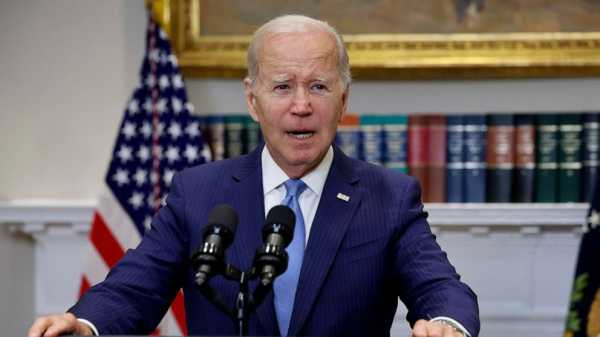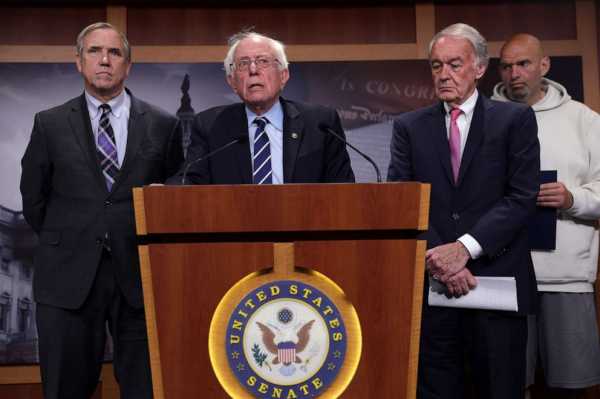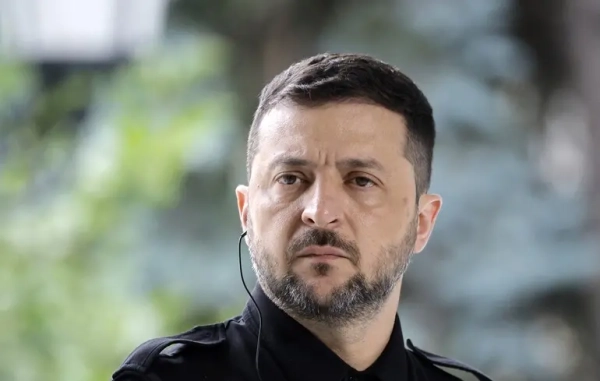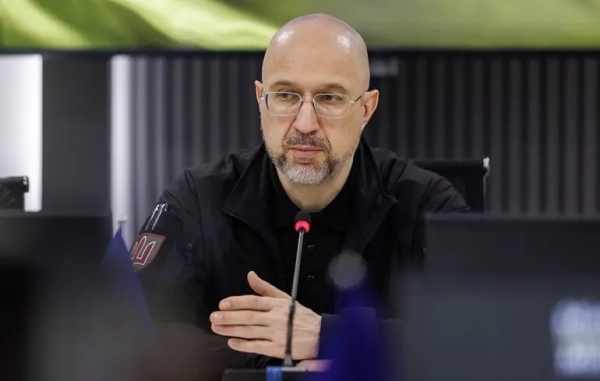As the nation heads toward a potential default, possibly as soon as June 1, President Joe Biden is facing pressure from some Democrats to use the 14th Amendment to unilaterally raise the debt ceiling.
With time growing short, Biden was asked again Sunday whether he was considering such action as tense negotiations continue between the White House and congressional Republicans.
MORE: Biden, McCarthy to talk debt ceiling, spending with 10 days left to reach deal or risk default
"I'm looking at the 14th Amendment," he told reporters in Japan. "As to whether or not we have the authority, I think we have the authority."
But the never-tested issue, Biden noted, would almost surely be litigated — likely all the way to the Supreme Court — and it's unclear if the matter could be resolved before the default deadline or even soon after. Some critics argue the uncertainty could have just as severe consequences as failure to reach a deal.
"We have not come up with a unilateral action that could succeed in a matter of two weeks or three weeks," Biden said. "That's the issue."

U.S. President Joe Biden delivers a brief update of the ongoing negotiations over the debt limit in the Roosevelt Room at the White House, May 17, 2023, in Washington.Chip Somodevilla/Getty Images
At the same time, he said once this debt limit crisis is over, his intention is to find a way to take the matter to the courts "to see whether or not the 14th Amendment is, in fact, something that would be able to stop it," referring to the recurring showdowns over raising the limit.
Here's what to know about the 14th Amendment and how whether to use it is being argued in the debt ceiling showdown.
What does the 14th Amendment say?
The 14th Amendment is primarily known for its citizenship rights and equal protection clauses, but Section 4 of the amendment relates to the nation's public debt.
The section reads, in part: "The validity of the public debt of the United States, authorized by law, including debts incurred for payment of pensions and bounties for services in suppressing insurrection or rebellion, shall not be questioned."
MORE: How US national debt grew to its $31.4 trillion high
It was written in the aftermath of the Civil War and refers to the debt incurred to fight the Civil War on the Union side.
Can Biden use it? Legal expert weighs in
Legal experts, both in recent weeks and in past debt ceiling battles, have debated whether the 14th Amendment can be used to essentially declare the debt limit unconstitutional and avert default absent congressional action to raise it.
"The 14th Amendment provides, in virtually no uncertain terms, that the public debt of the United States should not be questioned," Michael Gerhardt, a constitutional law professor at the University of North Carolina, told ABC News. "Biden could rely on that language to suggest that there's no debt ceiling and that he may have a lot of room to operate given that sort of constitutional commitment."
But there is no precedent for such a move, and it would immediately be challenged in court, Gerhardt said.
"Biden's going to rely on the language of the Constitution," Gerhardt said. "Republicans will argue that there's some kind of original meaning that undercuts the broad language of the Constitution."
Gerhardt said he believed the 14th Amendment was a "viable option" but "whether Biden can win is a separate question, and whether he can win in litigation that goes all the way up to the Supreme Court is unclear to me."
Who is calling for the 14th Amendment to be used?
Eleven Senate Democrats and 66 House progressives wrote letters to Biden last week urging him to use the 14th Amendment.
Democratic Rep. Jamie Raskin, a constitutional scholar, argued Monday that the 14th Amendment "provides that the 'validity of the public debt…shall not be questioned.' This is not an 'option' but a mandate. We can’t allow the MAGA fringe to crash the economy if we don’t cave into their demands to destroy critical social programs for vets, nutrition & health."
"Is this the perfect solution, is imposing the 14th Amendment the perfect solution? No it is not," Sen. Bernie Sanders said during a press conference on Capitol Hill last week. "But using the 14th Amendment would allow the United States to continue to pay its bills on time and without delay, prevent an economic catastrophe, and prevent devastating cuts to some for the most vulnerable people in the country."

U.S. Sen. Bernie Sanders (I-VT) speaks as (L-R) Sen. Jeff Merkley (D-OR), Sen. Ed Markey (D-MA), and Sen. John Fetterman (D-PA) listen during a news conference on debt limit at the U.S. Capitol, May 18, 2023, in Washington.Alex Wong/Getty Images
MORE: All the debt ceiling options, explained, if Biden and McCarthy don't reach a deal
Senate Budget Committee Chair Sheldon Whitehouse, in a press call on Monday advocating for the use of the 14th Amendment, made a similar argument that Republicans were leaving them no choice.
"The best case scenario, obviously, would be for Speaker McCarthy and his MAGA crew to put down the hand grenade and negotiate through the regular process of government that we've adhered to for 200-plus years," Whitehouse said.
"But again there's one person who is responsible for this and he's unwilling to put the pin back in the hand grenade," Whitehouse said, "and we have to face that consequence."
What's been the Republican reaction?
Speaker McCarthy's said he's opposed to the 14th Amendment, and Senate Republican Leader Mitch McConnell has advised, "Unconstitutionally acting without Congress is also not an option."
"If you're the leader of the free world, if you're the only president and you're going to go to the 14th Amendment to look at something like that, I would think you're kind of a failure of working with people across the aisle or working with your own party to get something done," McCarthy said earlier this month.
Sourse: abcnews.go.com






